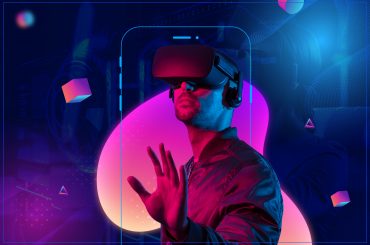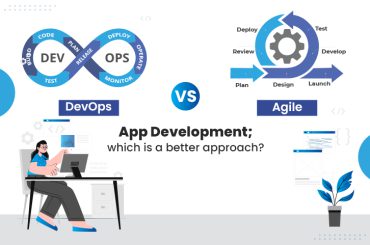In the ever-evolving landscape of mobile app development, augmented reality (AR) has emerged as a transformative force, adding layers of digital information to the physical world. As we step into 2024, the demand for AR app development is skyrocketing, with developers seeking powerful tools to bring their creative visions to life. This blog explores the top tools available in 2024 for building augmented reality mobile apps, highlighting their features, capabilities, and how they contribute to shaping the future of immersive mobile experiences.
Understanding the Importance of AR for Top Mobile App Development Company
Augmented reality technology overlays digital content onto the real world, creating interactive and engaging experiences for users. Today’s AR app development services involve a combination of cutting-edge tools, programming languages, and frameworks. Here, we delve into the top tools that are at the forefront of AR app development in 2024.
Top Tools for Android & iPhone Application Development Services
1.ARKit (iOS) and ARCore (Android): Foundational Frameworks
ARKit (iOS):
ARKit, developed by Apple, continues to be a pioneering framework for creating AR experiences on iOS devices. In 2024, ARKit has evolved to offer enhanced features such as persistent experiences, improved face tracking, and better integration with machine learning models. With support for LiDAR-equipped devices, ARKit facilitates more accurate and immersive AR applications, making it a go-to choice for iOS developers.
ARCore (Android):
As the Android counterpart to ARKit, ARCore, developed by Google, has been instrumental in bringing AR to a wide range of Android devices. In 2024, ARCore expanded its capabilities with features like environmental HDR and improved motion tracking. Its compatibility with a variety of Android devices ensures a broad user reach, making it an essential tool for developers aiming to tap into the Android AR market. ARCore plays an imperative role in the Android tablet development.
2.Unity 3D: Unleashing Creativity
Unity 3D stands as a versatile and powerful game development engine that has found extensive use in creating AR experiences. In 2024, Unity’s AR Foundation package further solidified its position as a top AR development tool. Developers benefit from a unified API that streamlines AR development for both ARKit and ARCore, fostering a more efficient and collaborative workflow.
3. Vuforia: Empowering Image Recognition
Vuforia, a robust augmented reality platform, empowers developers with tools for image recognition, object tracking, and digital eyewear support. In 2024, Vuforia augmented its offerings with features like Model Targets, allowing developers to recognize and track objects based on their 3D models. With cross-platform compatibility and support for popular programming languages, Vuforia remains a valuable tool for creating AR mobile apps.
4. AR.js: Augmented Reality for the Web
For developers venturing into web-based AR experiences, AR.js is a noteworthy tool. Leveraging JavaScript and WebXR, AR.js allows developers to create AR applications that run directly in web browsers. This open-source library supports marker-based and location-based AR, making it a versatile choice for developers who want to explore AR on the web in 2024.
5. Wikitude: Feature-Rich AR SDK
Wikitude offers a feature-rich augmented reality SDK (Software Development Kit) that facilitates the creation of AR apps for both iOS and Android platforms. In 2024, Wikitude continues to impress with its markerless tracking, 3D model rendering, and support for geolocation-based AR. The versatility and ease of integration make Wikitude a valuable asset for developers seeking to implement advanced AR features in their mobile apps.
6. RealityKit (iOS): Apple’s ARToolkit
As part of Apple’s AR ecosystem, RealityKit provides developers with a comprehensive toolkit for building AR experiences on iOS devices. In 2024, RealityKit has evolved to include features like collaborative sessions, enabling users to share the same AR experience in real time. Integrated seamlessly with Swift, RealityKit empowers iOS developers to create AR apps with a focus on simplicity and interactivity.
Conclusion
The world of augmented reality is evolving at a rapid pace, and the tools available for AR mobile app development in 2024 reflect this dynamic landscape. From foundational frameworks like ARKit and ARCore to versatile engines like Unity 3D and specialised platforms like Vuforia and Wikitude, developers have a diverse array of tools at their disposal. Whether creating immersive gaming experiences or working with IoT app development services, these tools are instrumental in shaping the future of AR on mobile devices. As the demand for AR continues to grow, staying abreast of the latest advancements in these tools will be essential for developers looking to push the boundaries of augmented reality in the years to come.
FAQs
1.What are the top tools recommended for building Augmented Reality (AR) mobile apps in 2024?
Stay up-to-date with the latest advancements in AR development by exploring the leading tools for 2024. This FAQ will provide insights into the most effective and popular platforms for creating AR experiences on mobile devices.
2. How do these tools differ in terms of user interface design and user experience optimisation for AR mobile apps?
Understand the nuances of user interface (UI) and user experience (UX) design when working with AR mobile app development tools. Discover how each tool addresses the unique challenges of creating engaging and seamless AR interactions on smartphones.
3.Are there any open-source AR development tools available in 2024?
Learn about open-source options for AR development and how they compare to proprietary tools. This FAQ will guide developers in evaluating the advantages and disadvantages of using open-source solutions for building AR mobile apps in 2024.
4.What programming languages are commonly used with the top AR development tools in 2024?
Gain insights into the programming languages that are best suited for AR development using the top tools of 2024. This FAQ will help developers understand the technical requirements and preferences associated with each tool in the current landscape.
5.How can developers leverage augmented reality frameworks within the selected tools to enhance app functionality?
Explore the integration of augmented reality frameworks within the chosen development tools. This FAQ will highlight the key features and functionalities offered by these frameworks, empowering developers to create more immersive and feature-rich AR experiences in their mobile apps.





